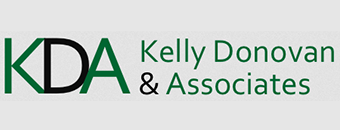Why you shouldn’t use an objective on your resume
Ah, the resume objective. They were once a requirement for the top of your resume.
Now, those who are savvy about modern resume trends know that objectives are considered outdated and ineffective in today’s job market.
A couple of the key reasons objectives have fallen out of favor are:
- The objective statement focuses heavily on what you are seeking rather than what you have to offer.
- Most job seekers end up writing cliche-filled objective statements that are likely to result in readers rolling their eyes.
Here are a couple examples of objective statements people might have used in the past:
- “Objective: A rewarding position within a dynamic, growing company”
- “Objective: A software sales executive position with unlimited growth opportunities”
Doesn’t everyone want a rewarding position? Does anyone want to be in a shrinking company? What does this tell the employer, other than the fact that the person wants a marketing position (which is way too vague–there are so many flavors of marketing)?
The objective statement was intended to inform potential employers about what type of positions you are seeking and suitable for, but there are other ways to accomplish this.
What to do Instead of an Objective
You can use a summary, and possibly a headline, to convey your qualifications and the type of position you’re seeking.
Examples of headlines:
- “Award-winning digital marketer with history of boosting website traffic, increasing conversions, and growing e-commerce revenue”
- “Senior-level software sales executive fueling profitable growth through strategic partnerships”
Does that tell the employer more right off the bat compared to the objective statement example above? Of course it does! It hits on exactly the types of things an employer would want in a digital marketer. And there isn’t any question about what type of jobs you’re seeking–you’re obviously seeking digital marketing jobs; no confusion there, and no objective needed.
Your sizzling headline can then be followed by a summary consisting of a few bullet points, or a paragraph, or a short paragraph followed by a few bullet points. You can also include a core competencies section (a list of skills) if you want.
Nails in the coffin of the objective statement
Resume experts started using headlines and summaries instead of objectives about a decade ago, but it takes a VERY long time for every professional, executive, and career counselor to hear about the latest trends in resume writing. So there are still a fair number of folks who are using objectives and recommending objectives.
If you have a resume book that recommends the use of an objective, check to see when the book was published. Any book published more than a decade ago is likely to contain a lot of outdated information.
Here are a couple relatively recent books that emphasize the use of a summary instead of an objective:
- Resumes for Dummies, 8th Ed. (Wiley, 2019) [I was a contributor to this book]
- Modernize Your Resume (Emerald Career Publishing, 2016)
This article first appeared on KellyDonovan.com



